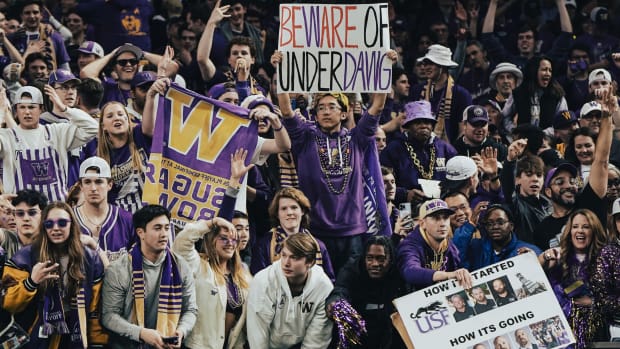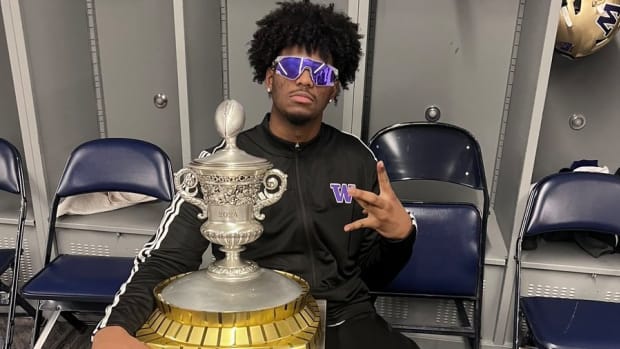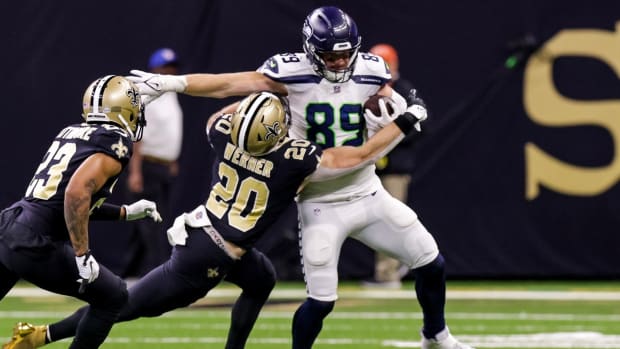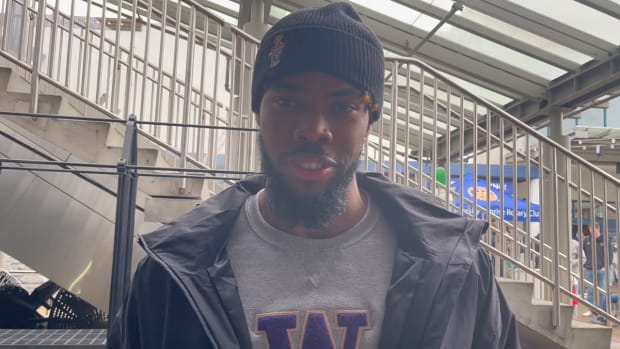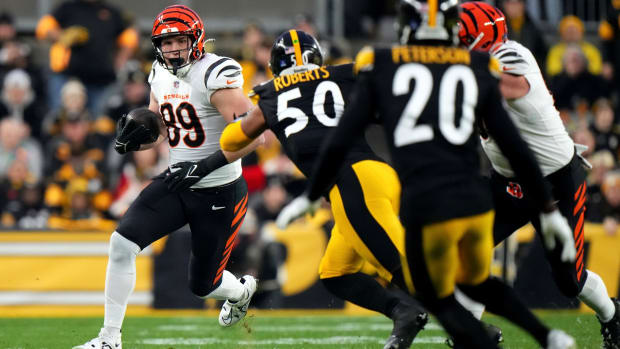Pac-12 Players Group, Commissioner Try to Arrange Meeting
Forty-eight hours following the launch of the Pac-12 football players protest, the athletes have spoken, fans largely have reacted negatively and the training-camp opening date keeps moving closer.
Pac-12 commissioner Larry Scott has reached out to the #WeAreUnited group, said to be hundreds strong but not confirmed, and asked to hold a conversation. Sports Illustrated details that interaction here.
In the face of the novel coronavirus pandemic, the players have demanded longer and more comprehensive medical care, scholarship and eligibility protection, more attention to racial injustice and league revenue dispersement to themselves.
Or they won't play.
The question that remains is how united are the players? And who's in or out?
While the movement in concept seems generally accepted, not all of the points have universal agreement among the conference players.
Elijah Molden, the University of Washington's senior cornerback and All-American candidate from West Linn, Oregon, made that clear from the beginning. He was not listed as one of the protest leaders, but he's one of the few who has taken to social media and offered any thoughtful observations.
"My initial reaction is how some of the demands seem unrealistic and far fetched given the context of our unique situation (COVID, financial restrictions, time, etc.)," Molden tweeted. "But that is not the point. The point is us players need to have our voices heard."
The medical ramifications of sending young athletes into potentially unhealthy situations of practicing and playing games is a pressing issue that could stand alone on its own merit.
Players clearly believe they have the right to expect extended health care in dealing with the possible aftereffects if contracting the virus. Stories have emerged nationwide of players detailing the illness.
Jaden Mitchell, an Arizona redshirt freshman wide receiver from Las Vegas, is a Pac-12 example of this. He recently detailed his battle with COVID-10. It's been an extremely difficult time for him.
In the Big Ten, University of Indiana offensive lineman Brady Feeney faces potential heart problems after contracting the virus, a situation publicized by his mother on social media.
Rutgers, another Big Ten member, is being hit hard by the virus after football players reportedly attended a party.
Across the Washington border, a majority of University of Idaho players apparently think the risks to their health are too great to play a season this fall.
Meantime, the next step to this potential Pac-12 football shutdown remains unsettled. Like with any labor movement, there will need to be negotiations, hard bartering, if it gets to that.
Scott, who earlier contracted the virus and whose future leadership at times seems tenuous, told the players he wants to speak later this week. The players responded by informing him he needs to speed up the timeframe.
"We are two weeks from fall camp and would like to work to come to a resolution so that we can play this season," the group leadership informed Scott in an email circulated among several news agencies. "Every day that we don't have discussions puts players at additional risk of COVID."
Over the next two weeks, the movement will either pick up momentum or disappear, depending on who's on board with it.
Pac-12 coaches, with the exception of Washington State's Nick Rolovich, have remained silent on the issue, with the schools deferring to the conference office. Rolovich, who told a player not to get involved in the movement or face repercussions, has since backtracked and apologized.
Washington football players appear cautious in their involvement, not responding to interview requests as this plays out. Faulty email addresses were dispersed for those Huskies identified with the cause. For some, it appears to be how far do they want to stick their necks out?
Look for inroads to be made on some of the issues, in particular medical care and social injustice. Scholarship guarantees have been made, but not in writing. Look for the financial demands to face fierce resistance.
Chances are, with football camps so close, all parties will agree to deal with these issues, yet in a staggered sequence.
Look for more athletes to simply opt out over health concerns. But even holding a football season, with western states representing virus hotspots, remains questionable at best.
Follow Dan Raley of Husky Maven on Twitter: @DanRaley1 and @HuskyMaven
Find Husky Maven on Facebook by searching: HuskyMaven/Sports Illustrated
Click the "follow" button in the top right corner to join the conversation on Husky Maven. Access and comment on featured stories and start your own conversations and post external links on our community page.
